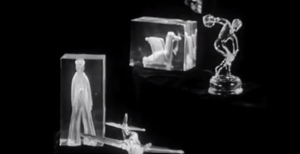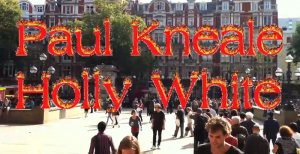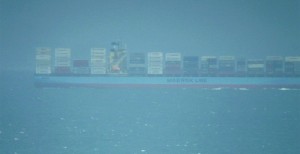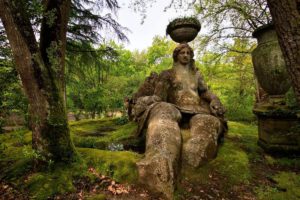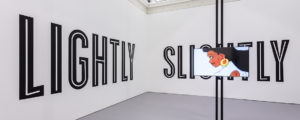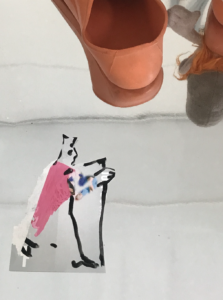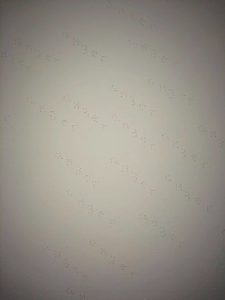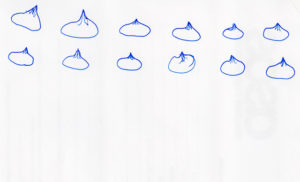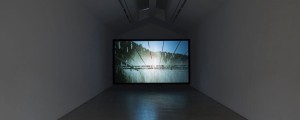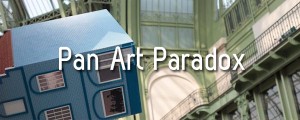In his native Lithuania Jonas Mekas is known most widely for his poetry but he’s also a filmmaker and an artist. It’s with this in mind that his latest exhibition at Serpentine galleries salutes the honesty and beauty of his famous prose, without straying into sentimentality.
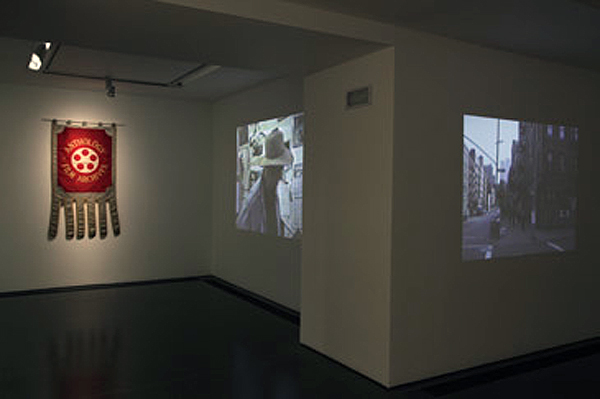
Within it are stills from his ubiquitous 16mm films of the mid and late 20th century, as well as the video works themselves, which span his sixty-year career. At the entrance of the space one finds a wall of images depicting the two sides of Mekas’ family, taken from the now inescapably nostalgic format of 16mm film. Complete with sprocket holes to indicate their origin, the images evoking the recent Tacita Dean work at the Tate Modern, highlighting the importance of the medium in Mekas’ work. To the right a projected montage of clips of Mekas’ encounters of New York, WTC Haikus (2010) in which the World Trade Center towers feature centrally, while a long quote from Mekas, stretches vertically on the adjacent wall. It outlines his optimistic and ‘happy’ life and his desire to express his contentment in the exhibition. Such an initiation might drive some to turn on their heel and look for something less saccharine, but the show tells a story coloured at every turn by melancholy and loss, avoiding reproaches for sentimentality or fanciful nostalgia.
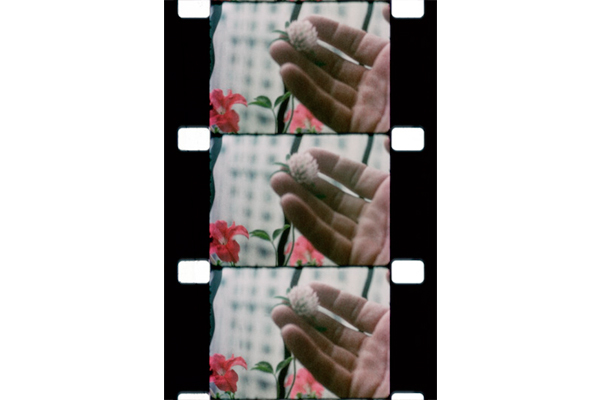
Having been forced to flee his home in Semeniškiai, Lithuania in 1944 Mekas fell into the hands of the Nazis and was interned in a forced labor camp in Elmshorn, Germany. It was after his experience of the war and subsequent move to New York in 1949 that he began to make films. The importance of film making in the artist’s life is exemplified in 1997’s Birth of a Nation, which is described by the gallery as a ‘visual manifesto’ played on four screens. It depicts various other notable US directors from the era, extending Mekas’ belief that film makers in America constitute a nation in and of themselves, such is the importance of their work.
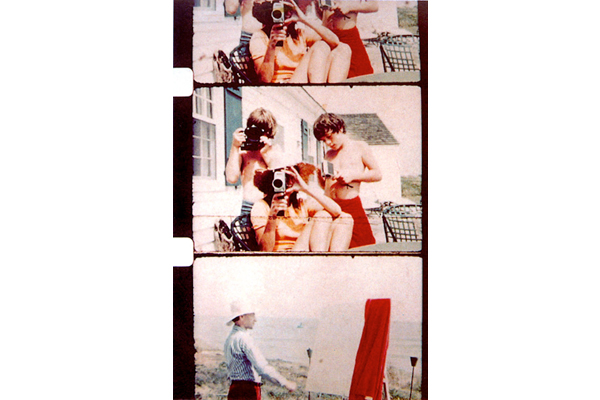
Within this exhibition the so often superfluous blurb, which accompanies each work is put to good use as a tool for further dispelling any notions of self-indulgence. First there is a word from the artist on his own thoughts on the work and in some cases a memory or reflection on the period in which it was made. These are then tempered with a section from the Serpentine galleries, with some contextualization within the American Avant-Garde, or the conditions in the Lithuania where he grew up.
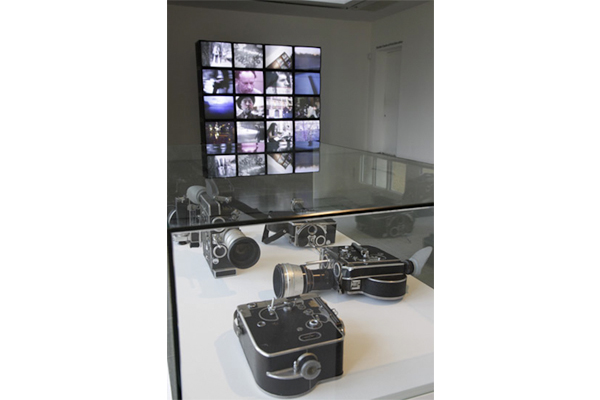
Outtakes from the Life of a Happy Man (2012) occupies the main screening room and is another montage of clips plucked from Mekas’ vast library flashing before the eyes of the viewers and placing them in the shoes of the 90-year-old in his autumn years. The show constantly reminds the viewer of the life’s transience but somehow manages to avoid preaching. Mekas’ old Bolex cameras sit in a vitrine as relics of his past, while he moves on with new formats. This is a show which celebrates a life well-lived and nearly a century, the Jonas Mekas is far from resigned to mere reflection.
Jonas Mekas is on at the Serpentine galleries, London and runs from the December 5, 2012 to January 27, 2013. Admission is free.

